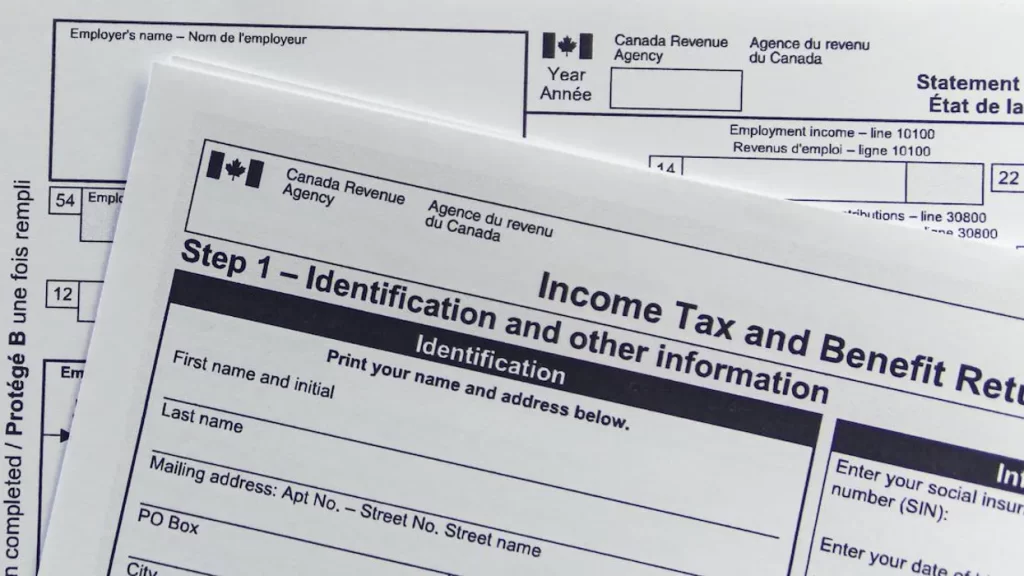Canadian Personal Income Taxes: The Canadian federal tax system is a crucial mechanism for funding public services and infrastructure across the country. As a taxpayer, it’s essential to have a clear understanding of how this system works. In this blog post, we will provide an overview of the Canadian federal tax system, including the types of taxes collected in canada, tax rates, and how to calculate your taxable income.
Types of Taxes Collected in CANADA
- Income Tax: Income tax is the primary source of revenue for the federal government. It is levied on individuals and businesses based on their earnings. The income tax system in Canada is progressive, which means that as your income increases, you will be subject to higher tax rates.
- Goods and Services Tax (GST): The GST is a value-added tax imposed on most goods and services sold in Canada. The current rate of GST is 5%, and it is collected by businesses on behalf of the government.
- Harmonized Sales Tax (HST): Some provinces have chosen to combine their provincial sales tax with the GST, creating a harmonized sales tax (HST). The HST rates vary depending on the province, as some provinces have a single HST rate, while others have different rates for specific goods and services.
- Corporate Tax: Businesses operating in Canada are subject to corporate income tax on their profits. The corporate tax rates differ based on the level of profits and the province in which the business operates.
- Capital Gains Tax: When you sell an asset, such as stocks or real estate, for a profit, you may be subject to capital gains tax on the gain. The tax rate for capital gains is generally lower than the regular income tax rates.
Check: Empowering Legal Documentation: Downloadable General Power of Attorney Format in Word
Individual – Taxes on Personal Income

Individuals resident in Canada are subject to Canadian Income Tax on worldwide income. Relief from double taxation is provided by Canada’s international tax treaties as well as foreign tax credits and deductions for foreign taxes paid on income derived from non-Canadian sources.
Non-resident individuals are subject to tax on income from employment in Canada, income from carrying on a business in Canada and capital gains from the disposition of taxable Canadian property.
Individuals resident in Canada for only one year are taxable in Canada on worldwide income only for the period during which they were resident.
Personal tax credits, miscellaneous tax credits, and dividend tax credits are subtracted from tax to determine federal tax liability.
For example, if you were an Indian citizen who became a resident of Canada, you might still earn money from India and pay income tax to the Indian government as per their tax laws.
As a resident of Canada, you would be eligible to claim the amount of tax paid in India as foreign tax credits when filing your federal tax returns in Canada.
This helps avoid double taxation and ensures that you can benefit from the taxes paid in your home country while fulfilling your tax obligations in Canada.
Read More: Choosing the Right Business Entity for Tax Purposes in the USA
Federal Income Tax Brackets for Tax Year 2023
Canadian federal tax rates are progressive, meaning that they increase with income levels. As of the last update in 2021, the federal tax rates for individuals were as follows:
| Federal Taxable Income Slab (CAD) | 2023 Federal Tax Rates ( Personal Income Tax Rates) |
| to $ 53359 | 15.00 % |
| $ 53359 to $ 106717 | 20.5 % |
| $ 106717 to $ 165430 | 26.00 % |
| $ 165430 to $ 235675 | 29.00 % |
| Above $ 235675 | 33.00 % |
Calculating Taxable Income
To calculate your taxable income, you need to start with your total income for the year, including employment income, investment income, and any other sources of earnings.
Then, you can deduct eligible deductions, such as RRSP contributions, employment expenses, and certain tax credits. The resulting amount is your taxable income on which you will apply the appropriate federal tax rates.
The Canadian federal tax system plays a vital role in financing essential public services and programs.
Understanding the types of taxes collected, tax rates, and how to calculate your taxable income is essential for responsible financial planning and tax compliance.
By staying informed about the tax system, you can make informed decisions and fulfill your tax obligations effectively.
Always consult with a tax professional or refer to the Canada Revenue Agency (CRA) for the most up-to-date tax information and guidance. and visit our visit for regular updated
Get The Latest Information On Business, Finance, Investment, Brand Building, Lifestyle, Entertainment, And Billionaire Quotes On Edueasify.
